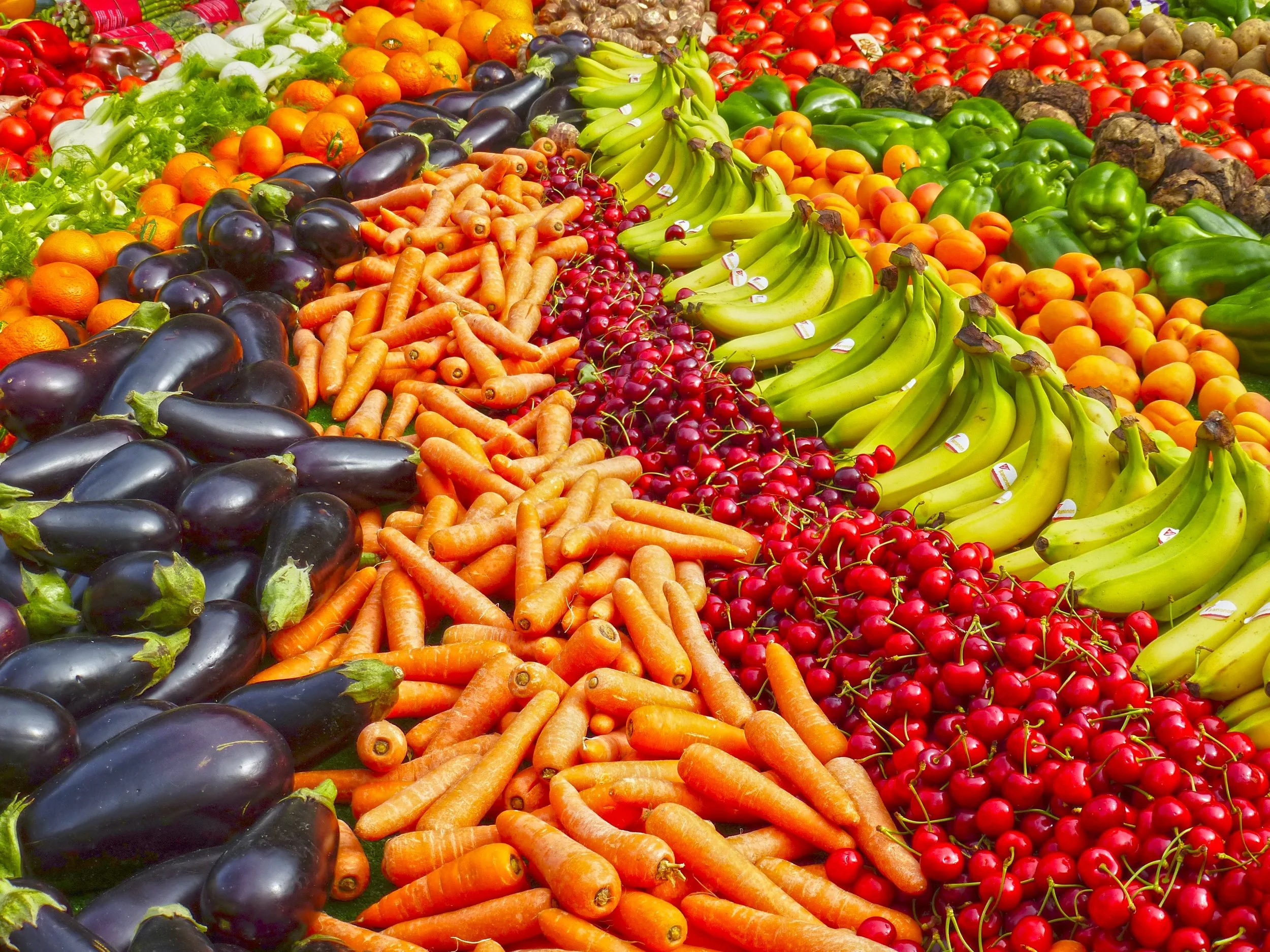Nutrition
In decades past, very few urban kids had ever even heard of a parsnip, a fennel bulb, or a bunch of kale. In those days, fruit and vegetable consumption typically consisted of apples, bananas, corn, potatoes, peas, and lettuce. Oranges were infrequent and grapefruit was a rarity. Today a veritable cornucopia of produce is available year-round, providing the possibility for substantial variety in a family's daily diet. But with the exception of families that include dedicated foodies, most diets could still be considered reasonably barren with respect to consumption of a range of healthful fruits and vegetables. Importantly, taking the single step of providing a variety of produce for the daily table will lead to multiple benefits in terms of health and wellness. In fact, eating a wide variety of fruits and vegetables is so valuable that this daily habit ranks high on the list of federal health and public policy recommendations focusing on nutrition.
Physiologically, all bodily systems, most especially the gastrointestinal system and immune system, depend on nutrition gained from fruits and vegetables. Consuming fresh produce daily enables the gastrointestinal system, that is, your stomach, small intestine, and large intestine, to process food effectively and facilitate the transit of food throughout the stomach and intestines. Deficiency of fresh fruits and vegetables will slow transit time, resulting in blockage, bloating, and compromised regularity. Similarly, immune system functioning depends critically on the availability of specific nutrients derived from fresh produce. These nutrients, known as phytochemicals, provide biochemicals that aid immune system cells such as neutrophils, macrophages, and natural killer cells in defending the body against bacteria, viruses, and other microscopic disease-causing invaders.
Nature has provided us with an easy means of identifying thetypes of produce that contain the most healthful nutrition: the more colourful the fruit or vegetable, the more phytochemicals and other nutrients it contains. For example, foods rich in phytochemicals include blueberries, carrots, greens such as kale and chard, broccoli, apples, oranges, beets, rutabaga, sweet potatoes, and tomatoes. Produce such as bananas do not contain many phytochemicals, but are still valuable sources of complex carbohydrates.
Thus, all of us, both children and adults, need our daily portions of fresh fruits and vegetables. Of course, merely having this information is not sufficient. Action is required. A four-week trial of adding fresh produce to your family's daily diet should provide many indicators of the available health benefits of these marvellous foods. Such evidence will likely be sufficient to cause a healthful long-term shift in your family's dietary habits with numerous positive outcomes in the years to come.
Regular Chiropractic Care Makes Good Food Better
Under the hood, the deceptively simple process of eating initiates an exceedingly complex chain of events. From the first bite of that apple, pasta dish, or corned beef sandwich, countless cells, tissues, enzymes, and hormones are called into action to enable you to derive the maximum nutrition from the good food you're eating. Of course, the activities of the digestive system are tightly coordinated. But such coordination requires a master plan.
Your digestive system's master plan unfolds under the direction of your brain and nervous system. Your nervous system transmits information between your brain and your organs of digestion, making sure that everything is done timely and effectively. But structural shifts and nerve interference can cause problems, leading to gastrointestinal symptoms and even disease. By detecting structural shifts and correcting the cause of nerve interference, regular neurostructural chiropractic care helps make sure your digestive system is working the way it was designed to work. In this way, neurostructural chiropractic care helps make sure your family and you get the most out of your good food and enjoy long-lasting health and wellness.

